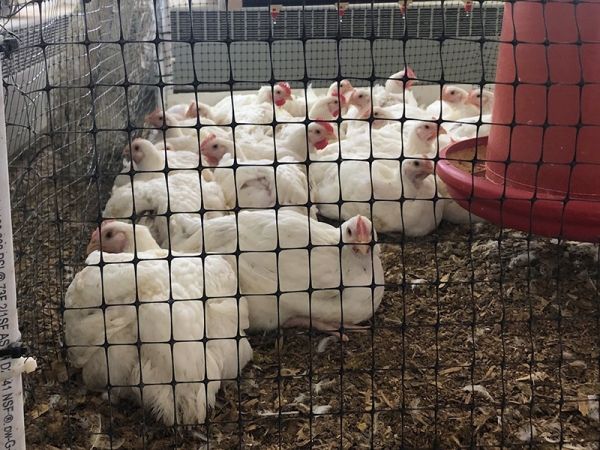Chicken is the most consumed protein in the United States. According to the National Chicken Council, the U.S. produced more than 9.2 billion broiler chickens in 2019. US consumers spent more than 95 billion dollars on chicken products.
All these broilers – chickens raised for meat – need millions of tons of litter, or bedding material. Reusing chicken litter can save costs. There exists some health and safety concerns though.
Surprisingly, a new study shows that the environment in reused poultry litter can actually deter growth of pathogens like Salmonella.
“When you read or hear that broiler litter is reused to raise multiple flocks of chickens, the typical reaction is that it must be bad for food safety,” says Adelumola Oladeinde, a co-author of the recent study. “Our study demonstrates the exact opposite.”
Oladeinde is a researcher at the USDA’s National Poultry Research Center in Athens. He and his colleagues found that ‘good’ bacteria in used poultry litter can hinder Salmonella growth.
Read more at American Society Of Agronomy
Image: Broiler chickens raised on floor pens covered with litter composed of pine shavings at the University of Georgia’s poultry research center. Credit: Adelumola Oladeinde


